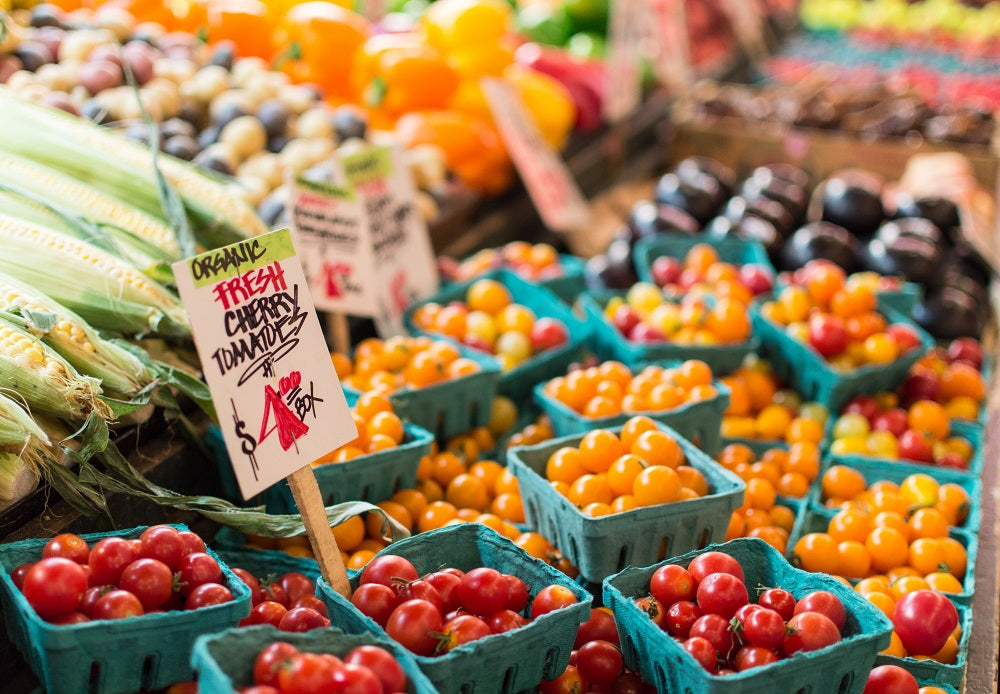News
Sustainable Farming: Why is it so Important?

You’ve likely heard of ‘sustainable farming’ before. They’ve become buzzwords in the agricultural industry and rightly so… But what does the term actually mean?
Holistic approach to farming
Sustainable farming is, at heart, a holistic approach to farming. It seeks to farm in ways which are sustainable based on society’s needs. It views each farm as a system, recognizing that any changes made to one component of the farm will affect the other components.

Why is sustainable farming so important?
It makes effective use of land
It’s incredible to consider how much land is used in the process of industrial farming. The world's largest user of land resources is livestock. Pasture and arable land are used to produce feed. This accounts for nearly 80% of the world’s total agricultural land. One-third of the world’s arable land is currently used to grow feed. 26% of the world’s terrestrial surface (not including ice surfaces) is used for grazing. With so much of the world’s surface being dedicated to farming, it’s important that we’re making effective use of this land.
Most industrial farming fields have just one crop growing in them at a time. This means if other crops are to be grown, additional fields need to be found.
Sustainable farming, however, values diversity and incorporates several different crops together on a single plot of land. Tall plants which love the sun are grown together with shorter plants which love the shade. This produces more food per acre of land. Having several varieties can make the crop stronger. This is due to there being more genetic diversity, meaning the crop is less likely to suffer from diseases or succumb to pests.

It works in harmony with Nature
Nature responds better to cooperation than domination. Traditional industrial farming often imposes itself on Nature. It often attempts to extract all that it can from Nature without much thought for natural replenishment. Some pertinent examples of this include the tilling of soil, deforestation and the use of chemical pesticides.
In contrast, sustainable farming seeks to work in harmony with Nature, realizing that future generations will benefit from a regenerative approach. Regenerative farming seeks to enrich soils, increase biodiversity, and enhance ecosystem services. As the Rodale Institute eloquently puts it, regenerative agriculture ‘improves the resources it uses, rather than destroying or depleting them’. Some of the key elements of regenerative farming include: conservation tillage, rotation and cover crops and crop diversity.

It reduces pollution
Industrial plant farms tend to use fertilizers to promote plant growth. These inorganic fertilizers, however, can contain hazardous chemicals such as zinc, lead and chromium. It’s a harrowing thought that the crops we buy in supermarkets have likely been exposed to these harmful chemicals. Inorganic fertilizers pollute runoff water too, causing potential harm to humans and the environment. Sustainable farming seeks to avoid this issue by using natural fertilizers.
Industrial animal farming can also produce waste that pollutes nearby waters. Industrial cattle farming, in particular, can produce greenhouse gases such as methane which harm the earth’s atmosphere. One of the aims of sustainable farming is to keep the number of animals on farms as small as possible. An undermentioned aspect of sustainable farming includes keeping livestock in good health and ensuring they’re well cared for. Greenhouse gases can be reduced when animals on a farm are healthy.

It creates a stable food supply
Farms are often consolidated into large corporations as a result of industrial agriculture. Unfortunately this means that the struggles of an individual company can impact a large bulk of the country’s farmers. Sustainable farming, however, is more dispersed and limits the impact of financial struggles to a small portion of the agriculture industry.
With the world’s population expected to reach 9.7 billion by 2050, sustainable farming is a big step towards providing the world with nutritional food. Sustainable farming causes us to think about our relationship with the environment and how we can preserve our natural resources.
With an increasing appreciation for sustainability, we can at least be optimistic about our chances. The fact that more and more large food companies are agreeing to remove artificial colours from their products bodes well for a more mindful future of food production.

It promotes local communities
Sustainable farming greatly encourages the concept of local food production. When food systems are local, money can be reinvested in the communities. The money subsequently flows through the local area, providing jobs for people.
Sustainable farming also plays an important environmental role in local communities. Rural aesthetics are certainly boosted by well maintained farms. Sustainable farms also support the local ecosystem by providing a well maintained habitat for wildlife.
The cultural aspect of farming cannot be ignored either. Many communities have a strong agricultural heritage, having been settled by hard working people who provided services to farms. Sustainable farming practices can boost a community’s self-image and become a source of inspiration for future generations of farmers and environmentalists.

The benefits of sustainable farming still require more publicity. As more people become inspired by its benefits, there’s every chance we will start to see a greater call for sustainable food systems in the not too distant future.
At Click & Grow, we believe humankind’s relationship with Nature is vitally important. To contribute to a more sustainable future, we create products that enable nutritious greens to be grown hyper-locally, even in urban areas where gardening space is hard to come by. To learn more about what we believe in, visit us at www.clickandgrow.com.
Enjoy a sustainable, stress-free way to grow organic greens
Presenting the Smart Garden 3 and Smart Garden 9
Fully automated indoor gardens that grow plant pods for you while making sure they have enough water, light, oxygen and nutrients.
Visit our blog for features such as green living tips, ways to create sustainable homes, the importance of food safety, how to grow plants indoors and much more.
